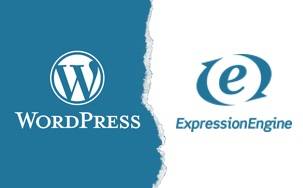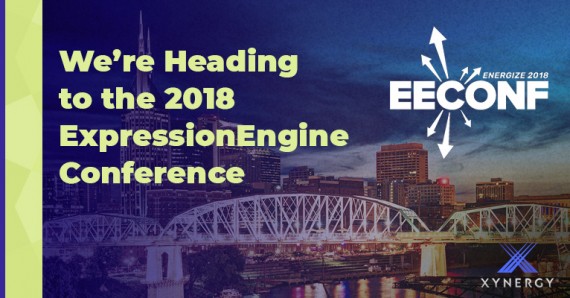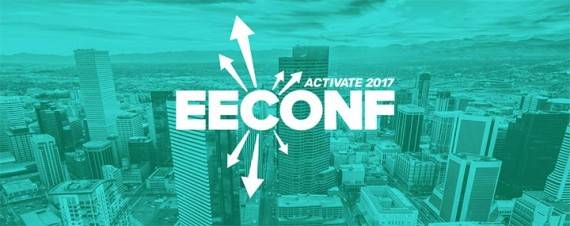A robust CMS provides the foundation for collaboration, offering users the ability to manage documents and output for multiple author editing and participation.
WordPress and Expression Engine are the two most popular Content Management Systems (CMS) out there when it comes to building a website (or redoing an existing one). Our Xynergy team is expert at both.
More people have probably heard of WordPress—it started out as a blogging CMS, so it has had time to insinuate itself into the general consciousness as such. And as it grew in popularity, and more people used it, it soon adapted itself to users’ other wants and needs, to the point where it is now a full-fledged CMS. The other reason it caught on among users is because it’s free and open-source.
(WordPress is also based on PHP and MySQL. PHP is a scripting language designed for web development but also used as a general-purpose programming language; it originally stood for Personal Home Page. MySQL, one of the world’s most widely used open-source database management systems, was named after My, the daughter of cofounder Michael Widenius; and SQL stands for Structured Query Language.)
Expression Engine first came onto the CMS scene in around 2005, from EllisLabs in Bend, Oregon. Currently, it’s one of the top 5 most-used CMSs out there, and it, too, is written in PHP and MySQL. Really, though, it’s as much a web-developer’s toolkit as it is a CMS.
When it comes to choosing which CMS best fits your project, that often depends on your needs, what you’re comfortable with, what you want your site to do. Here, then, are the pros and cons of each, according to our esteemed coder/developers, Jennifer Frye (on WordPress) and Curtis Ryan (on EE).
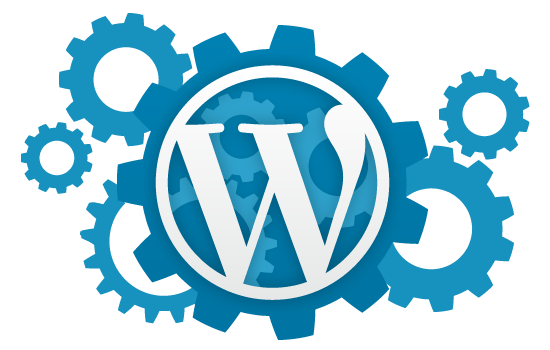
Jenn on the pros and cons of WordPress:
PROS:
It’s free—yay!
It’s open source. That means there are lots of eyes on the code, which allows for quick finding and fixes to bugs and problems.
It’s intuitive. It’s easy to learn how to use.
It has endless themes. Theme to meet almost any need.
It has endless plugins, too. There is a plugin to solve almost any problem.
And updates—new features and updates are constantly being released.
CONS:
It’s hack prone. Because so many people use it, it is a very large target for hacking.
Updates. Because WordPress is continuously being improved upon, it needs to be constantly updated in order to help prevent hacking. Not only does the core of WordPress need to be kept up to date, but so do all of the themes and plugins that are installed.
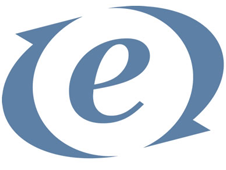
Curtis on the pros and cons of ExpressionEngine:
PROS:
Flexibility to customize. EE enables you to craft a custom back-end strategy tailored to the specific needs of your project. Data can be organized and fed to the website in almost any way conceivable, making it easy to create structured data schemas which can be used to boost SEO and increase website visibility.
Content-first approach. At the heart of EE is the Content Channel. The Channel is a data feed that can stand alone or be mashed-up and combined with other channels. For example, a specific piece of data like an event listing can have its own page on a website, and also be fed to other locations within that website or external websites, apps, and content channels. This approach liberates each piece of content from the context of the website and enables it to exist in whatever location may be relevant.
Security. EE is built on top of CodeIgniter, an object-oriented PHP framework. Object oriented programming abstracts critical website functions from their front-end output, which greatly reduces the possibility of a security exploit. On top of this practical benefit, EE is not widely known compared to other more popular CMS systems. Because of this lower profile, it is much less likely to become the target of a mass exploit.
CONS:
Complexity. It helps to have web development experience when building a website with EE. Once the site is built, the CMS itself is very intuitive and easy-to-use. However, you may need access to a developer if you need changes to site architecture or functionaltiy.
Cost. The EE license is $299, which could be a barrier if you just want to put up a quick or short-term website with little commitment. EE requires an up-front investment, but in return delivers a professional, secure, and robust system that scales well and can continue to deliver for the long-term.
Contact us for help with your Pro Website Build.
or Call 505-557-7780


